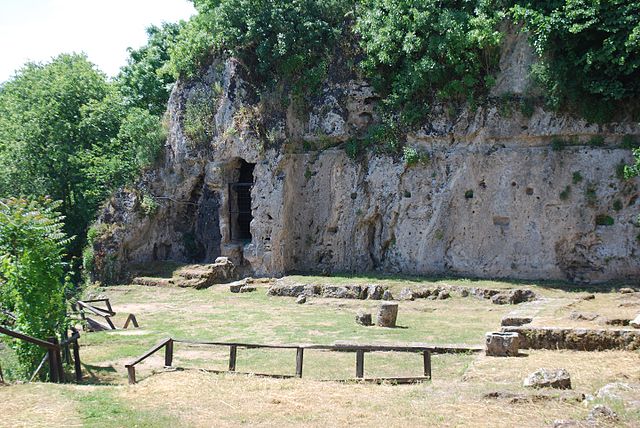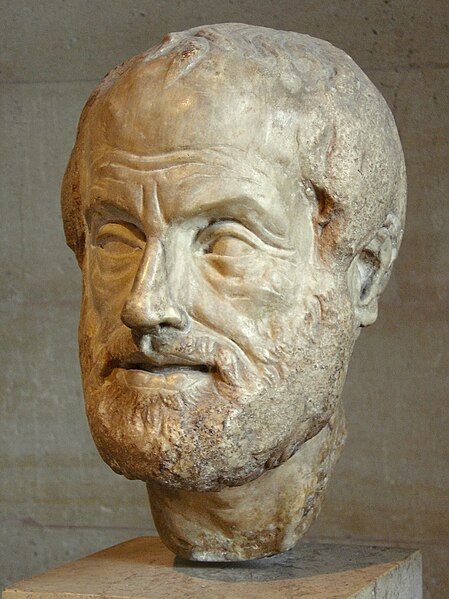Aristotelian physics is the form of natural philosophy described in the works of the Greek philosopher Aristotle. In his work Physics, Aristotle intended to establish general principles of change that govern all natural bodies, both living and inanimate, celestial and terrestrial – including all motion, quantitative change, qualitative change, and substantial change. To Aristotle, 'physics' was a broad field including subjects which would now be called the philosophy of mind, sensory experience, memory, anatomy and biology. It constitutes the foundation of the thought underlying many of his works.
Aristotle depicted by Rembrandt, 1653
Aristotle was an Ancient Greek philosopher and polymath. His writings cover a broad range of subjects spanning the natural sciences, philosophy, linguistics, economics, politics, psychology, and the arts. As the founder of the Peripatetic school of philosophy in the Lyceum in Athens, he began the wider Aristotelian tradition that followed, which set the groundwork for the development of modern science.
Roman copy (in marble) of a Greek bronze bust of Aristotle by Lysippos (c. 330 BC), with modern alabaster mantle
School of Aristotle in Mieza, Macedonia, Greece.
"Aristotle tutoring Alexander" by Jean Leon Gerome Ferris.
Portrait bust of Aristotle; an Imperial Roman (1st or 2nd century AD) copy of a lost bronze sculpture made by Lysippos.





